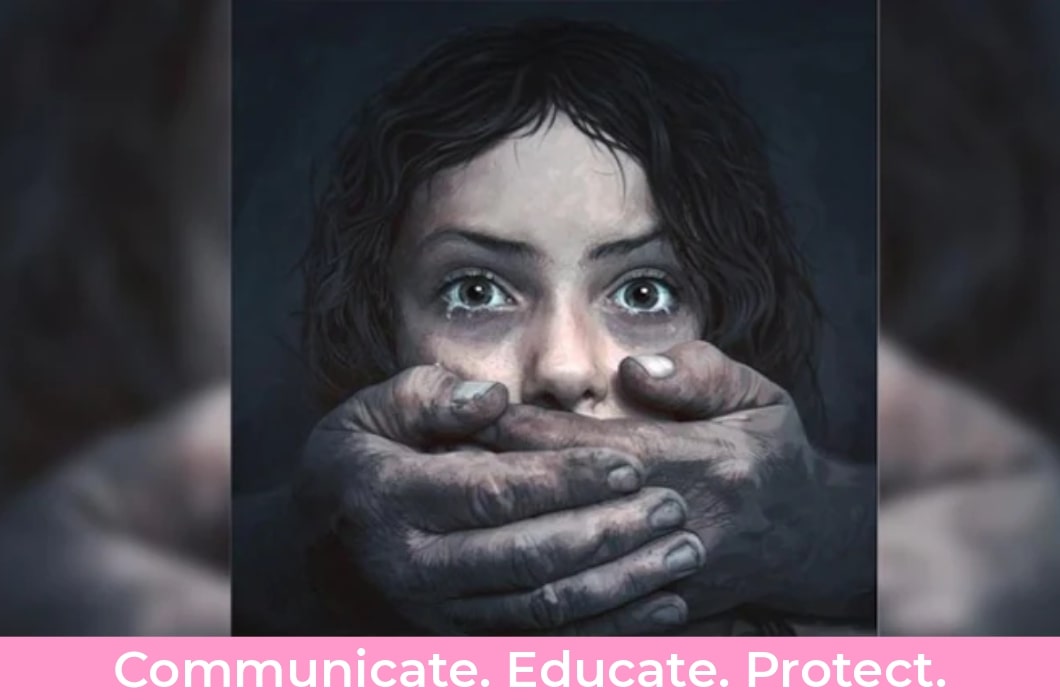Starting from the age of 2.5-3 years, it is essential to teach your children about body safety.
Communication is the key.
In India, people hesitate to talk about sex as most of them are narrow-minded and have a conception of sex as taboo. Parents can talk about poop and vomit with their children. But for some reason, sex is more embarrassing than other bodily functions. Parents need to create and maintain open communication early and often with their children about sex. Start when they are young enough to name their body parts. Teach them proper anatomical terms. Name a penis a penis, a vagina a vagina, shoulders, knees, breasts, nipples, etc. Use as many teachable moments as you can find. If your child wants to be in a bedroom alone then explain that setting as 'Privacy' rather than 'Secrecy'. You can say, "Privacy means you get to do it by yourself but mommy and daddy know about it. Secrecy means that we don’t know about it, and our family doesn’t do secrecy."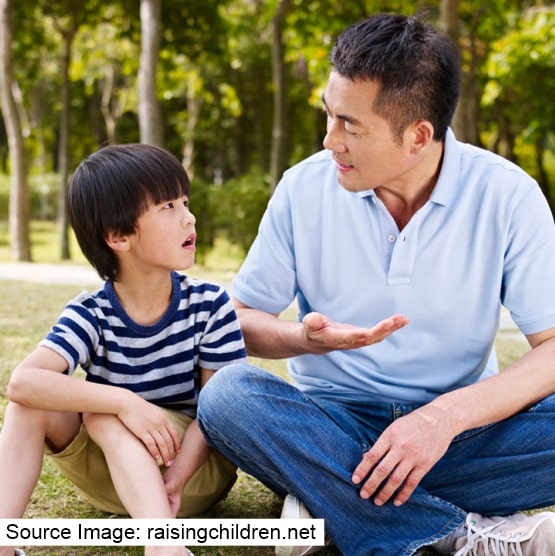
'Good touch' or 'Bad touch'?
Arousal might be one of the most important physiological responses related to sexual abuse that your children need to know about. Though you may feel embarrassed, remember that their sexual exploration is utterly natural. By the time they're preschool age, many children have figured out that it feels good to touch or rub certain parts of their bodies. They may be direct about this, or they may find an indirect route, like straddling the back of a couch. In any case, you should probably suppress your instinct to say urgently, "That's not nice." Explain why touching certain parts of their body makes them feel the way it does and who is allowed to do it to them. Stay calm and make them understand that their body belongs to them and hence no one should touch them in a way that is pleasurable. Tell them you know that feels good, but that's something to do in private, not with other people. Children are usually taught about 'good touch' and 'bad touch' at an early age. But this might confuse them because these dirty touches do not feel bad or hurt. The molesters target this feeling which compels the innocence of the kids to give in to the feeling of pleasure. Therefore, kids need to know from an early age that they are the agents of their own bodies.Children are never too old to talk about sex and sexual abuse
If you feel you passed over the chance to talk to your teen children about sex, It's not too late. Child on child sexual abuse has grown since last 10years. The majority of these incidents are due to pornographic content online. Children are going to get access to such content anyways online. They do not understand what to do with their hormones after getting exposed to such content. Therefore, they target younger children as these children do not understand what has been taken from them without their consent. Therefore, sitting down and having that uncomfortable conversation with your child is going to help prevent things in the long run because they are going to understand that you are a safe person to talk to and you aren’t going to lose your temper that they’ve said the word sex to you because you brought it to them first. If you have teens that won’t entertain a conversation or are not comfortable talking about it face to face, try a different means to communicate. Send them a link via text to an article. This is a great way to communicate without even having it.Your child's 'Circle of trust'
It is important to make sure your child understands the people in their circle of trust. These people are those who they can turn to when they need help, or who are permitted to aid them when you are not around. Children are going to be in situations where they may have one-on-one time with individuals, whether it's relatives, friends, teachers, coaches, doctors, or babysitters. So how do you not get paranoid with every person your child is with? Start with having a simple conversation asking 'What did you do?', ' Did you have fun?', 'Who was there?'. Keep the line of communication open. Do not be or sound paranoid. Make this a habit since the child starts to talk at the age of two. This will help them be open about their thoughts and will make them feel OK to tell you if there is ever an incident where they do feel uncomfortable. If someone is spending one-on-one time with your child regularly, divert their energy. Make them get together in public places. While it is important to minimize the opportunity of incidents of child sex abuse by avoiding isolated situations with adults or other youths, it is best to take a rational approach and trust your gut.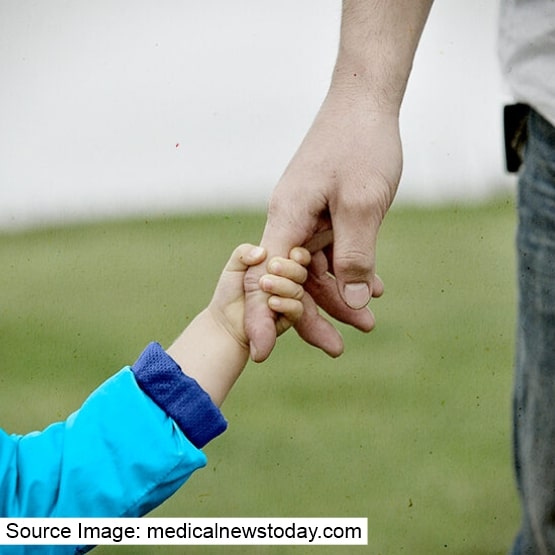
Know the real abuser
We have been growing up with 'agar raste main koi anjaan chocolate de toh lena nahi' (do not accept chocolates from strangers) referring to the idea that kids should avoid strangers to be safe from predatory activity. When children are asked to describe a 'bad guy' they usually describe a cartoonish villain character. The sad truth is that 90% of children being abused know their abuser. If that doesn’t make you pay attention to what is happening with your children behind your back by the people you trust, then what will? This is an important subject to focus on. People who abuse children look and act just like everyone else. They go out of their way to appear trustworthy and seek out settings where they can gain easy access to children.Body Boundaries
Make your child wear swimsuits and explain that in both genders, these areas should not be exposed to anyone other than your parents at a young age. It is important that infants understand that no adult or child should touch these private parts, talk about them, or ask to see them. Only their mommy and daddy can see them naked. Tell them mommy and daddy might touch your private parts when they are cleaning you or if you need cream, but no one else should touch you there. Not friends, not aunts or uncles, not teachers or coaches. Even if you like them or think they are in charge, they should still not touch your private parts. Also, their doctor can see them naked because mommy and daddy are there with them, and the doctor is checking their body. Teach them body boundaries. Tell them that no one should ask them to touch somebody else’s private parts. Parents often forget this sentence. Sexual abuse often begins with the perpetrator asking the child to touch them or someone else. Teach them that it is OK to say no. Explain that no one is allowed to take pictures of their private parts. This world is full of hungry pedophiles. These people enjoy clicking and trading pictures of children online.Do not allow your child to sit on anyone's lap, kiss or hug them
It does not matter if they are your friends or family. Do not allow your child to sit on anyone's lap whenever you are around. Explain to them that the same rule applies even when you are not around. You should never insist that children kiss or hug people, whether it’s the grabby uncle visiting during Diwali or the cool babysitter. It is best to refrain from doing this to help the child understand that they should never be asked to get physical in any way that makes them feel uncomfortable.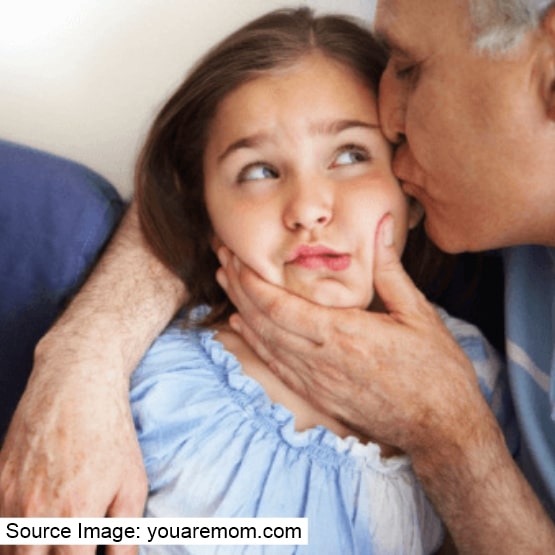
The 'CODE' word
While teaching your child about harassment and sexual assault, it is important to teach them how to get out of that uncomfortable situation. By doing this you will teach your child how to react in advance if put in any such situation and also open up a dialogue making them feel comfortable to turn to you knowing you’ll believe them. Tell them that it is ok to tell and to leave if they feel something wrong is happening and give them words to get out of that situation. For example, tell your child that if someone wants to see or touch private parts they can tell them that they need to leave to go potty. Give them a code word to use when they feel unsafe. It will be useful when they feel unsafe when there are guests in the house or when they are at a sleepover.No 'Body Secrets'
Certain perpetrators will threaten the child in order to ensure their secrets are kept. Let your child know that if anyone threatens to hurt them or you, then they need to come and tell you. It doesn’t matter who said it or what they said. The perpetrators might use a friendly tone also saying that they love playing with your child but if they tell anyone else what happened, they won’t be allowed to come over again." Think carefully about how to explain this to your child so they can understand it at their age and maturity level. Teaching your child about secrets is not a one-time thing. Every time you surprise them, make them understand about good and bad secrets. Keep talking to them, listening to them, and letting them know that you are there for them. No matter what.
'I believe you'
The three words that the child needs to hear from you when s/he comes to you with a potential disclosure of being a sex abuse victim are 'I believe you'. These three words are enough to start the conversation. Take things slowly. Do not interrogate them. There are professionals who know how to do that. Interrogating your child yourself might make things go wrong. The professionals are going to ask the right question to get the information they need. Children think telling their parents about body abuse might get them in trouble. Tell them that no matter what happens, if they tell you about anything bad happening with them, they will never get in trouble. One of the toughest things for parents is to not feel guilty upon hearing of a potential abuse situation. But, you should never make a child feel bad about it. Your response should be all about thanking your child for being brave enough to tell you about it because the amount of courage it took to break the spell and seek help is nothing short of heroic.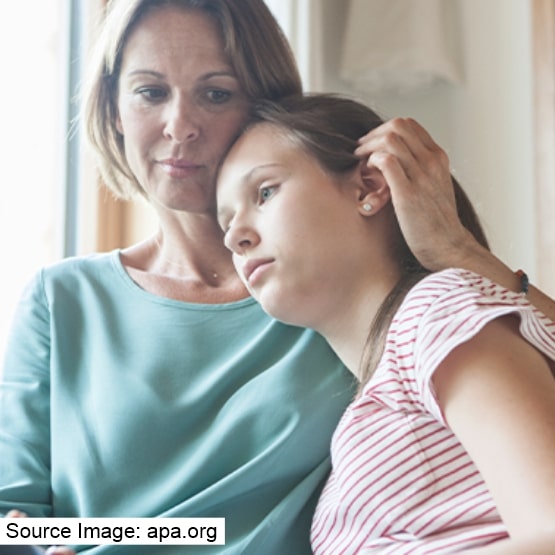
Child sexual abuse may involve physical contact or non-contact activities and can happen online or offline. It thrives in secrecy. A child cannot consent to any form of sexual activity. They may not always understand that they are being sexually abused. When a perpetrator engages with a child this way, they are committing a crime that can have lasting effects on the victim for years.
Contact abuse involves activities where an abuser makes physical contact with a child. It includes sexual touching of any part of the body, whether the child is wearing clothes or not, making a child take their clothes off, or touch someone else's genitals, forcing or encouraging a child to take part in sexual activity, rape or penetration by putting an object or body part inside a child's mouth, vagina, or anus. Non-contact abuse involves activities where there is no physical contact. It includes flashing at a child, encouraging or forcing a child to watch or hear sexual acts, not taking proper measures to prevent a child from being exposed to sexual activities by others, making a child masturbate while others watch, persuading a child to make, view or distribute child abuse images (such as performing sexual acts over the internet, sexting, or showing pornography to a child), making, viewing, or distributing child abuse images, allowing someone else to make, view or distribute child abuse images, meeting a child following grooming with the intent of abusing them (even if abuse did not take place), sexually exploiting a child for money, power, or status (child sexual exploitation).
Educate yourself on the signs of child sexual abuse. It is always the hardest with the parents. There are not always specific physical signs to it. If there is an extreme mental or emotional reaction to something, trust your gut and know something may be wrong. Trauma displays itself differently. For example, a student might start growing their hair, gain weight, wear baggy clothes, getting involved in substances. They are doing things that are going to hide the pain, hide from what’s actually happening. They do that to try and look unattractive, so their abuser won’t want them anymore.
Unfortunately, preventing child sexual abuse is not in our control unless society starts taking effective actions against this hideous act. But by taking safety measures, you can save your child to an extent.
If you come across a child who is a victim of Child Sexual Abuse,
you can contact
1098 helpline number for children
7827170170 helpline number for women
3317004 helpline number for counseling for women in distress
1098 helpline number for legal aid
+91-99965-53638 helpline number counseling services or reproductive issues
